Planning worship?
Check out our sister site, ZeteoSearch.org,
for 20+ additional resources related to your search.
- |
User Links
Person Results
‹ Return to hymnal
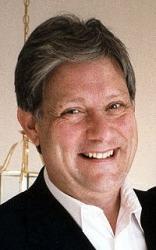
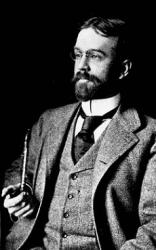

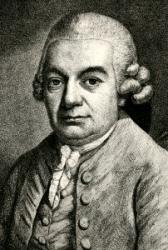
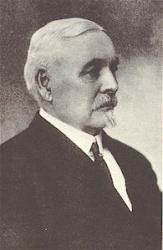





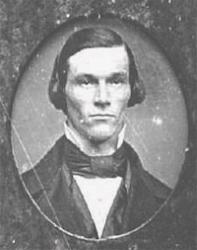


Export as CSV
John H. Gower
1855 - 1922 Scripture: Psalm 1 Hymnal Number: 6501 Composer of "MEDITATION" in The Cyber Hymnal
John H. Gower
William Daman
1540 - 1591 Scripture: Psalm 3 Hymnal Number: 5093 Composer of "SOUTHWELL (Daman)" in The Cyber Hymnal Aliases: Damon; Damano; Demaunde; Damond; Dymond
Born: ca.1540
Died: 1591
Damon was a foreign composer resident in England. He arrived probably in England in 1566 as a servant of Sir Thomas Sackville. In 1576 he became a recorder player at the Court of Elizabeth I.
He was described as having been born in "Luke" and "Lewklande" and, on the assumption that these names refer to Luik or Liège, it has been inferred that he was a Walloon. However contemporary London records describe him as an Italian and a later reference refers to him having been born in "Luke in Italy", i.e. Lucca. His unanglicised name may have been Gulielmo (or Gulielmus) Damano.
Daman died from the effects of an ulcer and was buried at St Peter-le-Poer, London, on 26 March 1591.
List of choral works:
Beati omnes qui timent Dominum
Confitebor tibi Domine
Miserere nostri Domine
Omnis caro gramen sit
Praedicabo laudes tuae Domine
Spem in alium
Publications:
The Psalmes of David in English Metre (1579)
The Former Booke of Musicke of M. William Damon (1591)
The Second Booke of Musicke of M. William Damon (1591)
--www3.cpdl.org/wiki/index.php/
William Daman
D. A. Duff
Scripture: Psalm 5 Hymnal Number: 10942 Composer of "[Let all them who trust Thy care]" in The Cyber Hymnal Early 20th Century
A minister, he worked on the committee that published The Presbyterian Psalter of 1887.
D. A. Duff
Michael, Lonneke

b. 1943 Person Name: Michael Lonneke Scripture: Psalm 13 Hymnal Number: 2481 Composer of "PARIS" in The Cyber Hymnal Born: 1943, Wichita, Kansas.
Lonneke began piano study at age nine with Nelle Taylor. Later, he studied piano with Marie Kassouny and studied choral music and conducting with Cecil Riney at Friends University, Wichita, Kansas. His business career has been in broadcasting management in America and Europe. He was the founding president of the Loudoun, Virginia, Symphony, and served as organist for the Anglican Church of the Good Shepherd and for Trinity United Methodist Church, both in Paris, Virginia, near Washington, DC. In 2006, he became organist/choirmaster for St. George’s United Methodist Church, Fairfax, Virginia.
Music:
BRING A TORCH
GUTERHIRT
MILLSPAUGH
MORRISON
PARIS
RINEY
http://www.hymntime.com/tch/bio/l/o/n/lonneke_m.htm
Michael, Lonneke
Frederic Field Bullard

1864 - 1904 Person Name: Frederic Field Bullard, 1864-1904 Scripture: Psalm 17 Hymnal Number: 3722 Composer of "LONGFELLOW" in The Cyber Hymnal
Frederic Field Bullard
Edward Miller

1735 - 1807 Scripture: Psalm 18 Hymnal Number: 6076 Arranger of "ROCKINGHAM (Miller)" in The Cyber Hymnal Edward Miller, Born in the United Kingdom. The son of a pavior (stone paver), Miller left home to study music at King's Lynn. He was a flautist in Handel's orchestra. In 1752 he published “Six Solos for the German Flute”. In 1756 he was appointed organist of St. George Minster Doncaster, continuing in that post for 50 years. He also gave pianoforte lessons. He published hymns and sonatas for harpsichord, 16 editions of “The Institues of Music”, “Elegies for Voice & Pianoforte”, and Psalms of David set to music, arranged for each Sunday of the year. That work had over 5000 subscribers. He published his thoughts on performance of Psalmody in the Church of England, addressed to clergy. In 1801 he published the Psalms of Watts and Wesley for use by Methodists, and in 1804 the history and antiques of Doncaster with a map.
John Perry
Edward Miller
Carl Philipp Emanuel Bach

1714 - 1788 Person Name: Carl P. E. Bach Scripture: Psalm 18 Hymnal Number: 6076 Composer of "ROCKINGHAM (Miller)" in The Cyber Hymnal Carl Philipp Emmanuel Bach, born at Weimar, March 14, 1714; music director at Hamburg, a prolific composer, great in all departments; as a writer of sings, odes, pslams, etc., he surpassed all his contemporaries; died at Hamburg, of consumption, Sept. 14, 1788.
A Dictionary of Musical Information by John W. Moore, Boston: Oliver, Ditson & Company, 1876
Carl Philipp Emanuel Bach
C. C. Case

1843 - 1918 Person Name: Charles C. Case Scripture: Psalm 19 Hymnal Number: 1847 Arranger of "FANEUIL HALL" in The Cyber Hymnal Charles Clinton Case USA 1843-1918. Born in Linesville, PA, his family moved to Gustavus, OH, when he was four. His father was an accomplished violinist, but a neighbor gave him a small violin when he was nine, and he mastered it before he could read music. At age 16 he went to singing school (without parental consent), borrowing the money from a neighbor. C. A. Bentley, a prominent conductor, was his first vocal music instructor, and William Bradbury's “Jubilee” was the school textbook. For three winters in a row, he attended Bentley's singing school, working his father's farm in the summer. He married Annie Williams. In 1866 he studied music in Boston with B. F. Baker. He also studied under George Root, Horatio Palmer, Philip Bliss, George Webb, and others, hymnwriters in their own right. Soon after, Case began teaching music, and when James McGranahan moved two miles from his home, they became friends. Case wrote and edited a number of Gospel song books in his life. 6 works.
John Perry
C. C. Case
Joseph Haydn

1732 - 1809 Person Name: Franz J. Haydn Scripture: Psalm 19 Hymnal Number: 1847 Composer of "FANEUIL HALL" in The Cyber Hymnal Franz Joseph Haydn (b. Rohrau, Austria, 1732; d. Vienna, Austria, 1809) Haydn's life was relatively uneventful, but his artistic legacy was truly astounding. He began his musical career as a choirboy in St. Stephen's Cathedral, Vienna, spent some years in that city making a precarious living as a music teacher and composer, and then served as music director for the Esterhazy family from 1761 to 1790. Haydn became a most productive and widely respected composer of symphonies, chamber music, and piano sonatas. In his retirement years he took two extended tours to England, which resulted in his "London" symphonies and (because of G. F. Handel's influence) in oratorios. Haydn's church music includes six great Masses and a few original hymn tunes. Hymnal editors have also arranged hymn tunes from various themes in Haydn's music.
Bert Polman
Joseph Haydn
Thomas Tallis

1505 - 1585 Scripture: Psalm 20 Hymnal Number: 3323 Composer of "TALLIS' CANON" in The Cyber Hymnal Thomas Tallis (b. Leicestershire [?], England, c. 1505; d. Greenwich, Kent, England 1585) was one of the few Tudor musicians who served during the reigns of Henry VIII: Edward VI, Mary, and Elizabeth I and managed to remain in the good favor of both Catholic and Protestant monarchs. He was court organist and composer from 1543 until his death, composing music for Roman Catholic masses and Anglican liturgies (depending on the monarch). With William Byrd, Tallis also enjoyed a long-term monopoly on music printing. Prior to his court connections Tallis had served at Waltham Abbey and Canterbury Cathedral. He composed mostly church music, including Latin motets, English anthems, settings of the liturgy, magnificats, and two sets of lamentations. His most extensive contrapuntal work was the choral composition, "Spem in alium," a work in forty parts for eight five-voice choirs. He also provided nine modal psalm tunes for Matthew Parker's Psalter (c. 1561).
Bert Polman
Thomas Tallis
Laura A. Tate
Scripture: Psalm 22 Hymnal Number: 154 Composer of "BOVINA" in The Cyber Hymnal
Laura A. Tate
W. Irving Hartshorn
Scripture: Psalm 40 Hymnal Number: 6955 Composer of "RUTH (Hartshorn)" in The Cyber Hymnal
W. Irving Hartshorn
Felix Mendelssohn-Bartholdy

1809 - 1847 Person Name: Felix Mendelssohn, 1809-1847 Scripture: Psalm 42 Hymnal Number: 210 Composer of "CONSOLATION (MENDELSSOHN)" in The Cyber Hymnal Felix Mendelssohn-Bartholdy (b. Hamburg, Germany, 1809; d. Leipzig, Germany, 1847) was the son of banker Abraham Mendelssohn and the grandson of philosopher Moses Mendelssohn. His Jewish family became Christian and took the Bartholdy name (name of the estate of Mendelssohn's uncle) when baptized into the Lutheran church. The children all received an excellent musical education. Mendelssohn had his first public performance at the age of nine and by the age of sixteen had written several symphonies. Profoundly influenced by J. S. Bach's music, he conducted a performance of the St. Matthew Passion in 1829 (at age 20!) – the first performance since Bach's death, thus reintroducing Bach to the world. Mendelssohn organized the Domchor in Berlin and founded the Leipzig Conservatory of Music in 1843. Traveling widely, he not only became familiar with various styles of music but also became well known himself in countries other than Germany, especially in England. He left a rich treasury of music: organ and piano works, overtures and incidental music, oratorios (including St. Paul or Elijah and choral works, and symphonies. He harmonized a number of hymn tunes himself, but hymnbook editors also arranged some of his other tunes into hymn tunes.
Bert Polman
Felix Mendelssohn-Bartholdy
William F. Sherwin

1826 - 1888 Person Name: William Fiske Sherwin, 1826-1888 Scripture: Psalm 44 Hymnal Number: 2082 Composer of "CUTTING" in The Cyber Hymnal Sherwin, William Fisk, an American Baptist, was born at Buckland, Massachusetts, March 14,1826. His educational opportunities, so far as schools were concerned, were few, but he made excellent use of his time and surroundings. At fifteen he went to Boston and studied music under Dr. Mason: In due course he became a teacher of vocal music, and held several important appointments in Massachusetts; in Hudson and Albany, New York County, and then in New York City. Taking special interest in Sunday Schools, he composed carols and hymn-tunes largely for their use, and was associated with the Rev. R. Lowry and others in preparing Bright Jewels, and other popular Sunday School hymn and tune books. A few of his melodies are known in Great Britain through I. D. Sankey's Sacred Songs and Solos, where they are given with his signature. His hymnwriting was limited. The following pieces are in common use:—
1. Grander than ocean's story (1871). The Love of God.
2. Hark, bark, the merry Christmas bells. Christmas Carol.
3. Lo, the day of God is breaking. The Spiritual Warfare.
4. Wake the song of joy and gladness. Sunday School or Temperance Anniversary.
5. Why is thy faith, 0 Child of God, so small. Safety in Jesus.
Mr. Sherwin died at Boston, Massachusetts, April 14, 1888.
-- John Julian, Dictionary of Hymnology (1907)
==================
Sherwin, W. F., p. 1055, i. Another hymn from his Bright Jewels, 1869, p. 68, is "Sound the battle cry" (Christian Courage), in the Sunday School Hymnary, 1905, and several other collections.
--John Julian, Dictionary of Hymnology, New Supplement (1907)
William F. Sherwin
W. H. Havergal

1793 - 1870 Person Name: William H. Havergal Scripture: Psalm 44 Hymnal Number: 2082 Arranger of "CUTTING" in The Cyber Hymnal Havergal, William Henry, M.A, son of William Havergal, was born at High Wycombe, Buckinghamshire, 1793, and was educated at St. Edmund's Hall, Oxford (B.A. 1815, M.A. 1819). On taking Holy Orders he became in 1829 Rector of Astley, Worcestershire; in 1842, Rector of St. Nicholas, Worcester; and in 1860, Rector of Shareshill, near Wolverhampton. He was also Hon. Canon in Worcester Cathedral from 1845. He died April 18, 1870. His hymns, about 100 in all, were in many instances written for special services in his own church, and printed as leaflets. Several were included in W. Carus Wilson's Book of General Psalmody, 1840 (2nd ed., 1842); and in Metrical Psalms & Hymns for Singing in Churches, Worcester, Deighton, 1849, commonly known as the Worcester Diocesan Hymn Book, and of which he was the Editor. In Life Echoes, 1883, his hymns are given with those of Miss Havergal. Of those in common use the greater part are in Mercer, and Snepp's Songs of Grace & Glory. Although his hymns are all good, and two or three are excellent, it is not as a hymnwriter but as a musician that Canon Havergal is best known. His musical works and compositions included, in addition to numerous individual hymn tunes and chants, the Gresham Prize Service, 1836; the Gresham Prize Anthem, 1845; Old Church Psalmody, 1849; History of the Old 100th Psalm tune, 1854, &c. He also reprinted Ravenscroft’s Psalter of 1611. His hymns in common use include:—
1. Blessed Jesus, lord and Brother. School Festivals, 1833. Published in Life Echoes, 1883.
2. Brighter than meridian splendour. Christ the glory of His Church. 1830. Published in W. C. Wilson's Book of General Psalms, 1840; the Worcester Psalms & Hymns, 1849, &c.
3. Christians, awake to joy and praise. Christmas Carol, c. 1860. Printed on broadsheet, with music by the author, and sold on behalf of the Lancashire Cotton Distress Fund.
4. Come, Shepherds, come, 'tis just a year. Christmas Carol. 1860. Published in Snepp's Songs of Grace & Glory,
5. For ever and for ever, Lord. Missions, 1866, for the Church Mission Society. Published in Snepp's Songs of Grace & Glory, 1872, and the Life Echoes, 1883.
6. Hallelujah, Lord, our voices. Sunday. 1828. Published in W. C. Wilson's Book of General Psalms, 1840; the Worcester Psalms & Hymns, 1849; Life Echoes, 1883, &c.
7. Heralds of the Lord of glory. Missions. First sung in Astley Church, Sep. 23, 1827. Published in Miss Havergal's Starlight through the Shadows, 1880; Snepp's Songs of Grace & Glory, 1872, &c.
8. Hosanna, raise the pealing hymn. Praise to Christ, 1833, and first sung in Astley Church, June 9, 1833. Published in W. C. Wilson's Book of General Psalmody, 1840; the Worcester Psalms & Hymns, 1849; Life Echoes 1883, &c.
9. How vast the field of souls. Missions. 1858. Printed for Shareshill Church Miss. Anniversary, 1863, and published in Snepp's Songs of Grace & Glory, 1872, and the Life Echoes, 1883.
10. In doubt and dread dismay. Missions. Written in 1837, and published in W. C. Wilson's Book of General Psalmody, 1840; the Worcester Psalms & Hymns, 1849, &c.
11. Jerusalem the golden, The home of saints shall be. Heaven. Published in Life Echoes, 1883.
12. My times are in Thy hand, Their best, &c. 1860. Published in Snepp's Songs of Grace & Glory, 1872, the Records of the author's life and work, and Life Echoes, 1883. The editor of the Records says (p. 159) "this hymn has been much appreciated, and well illustrates the devotional and cheerful spirit of the writer."
13. No dawn of holy light. Sunday. 1825. Printed in 1831 on a leaflet, and published in W. C. Wilson's Book of General Psalmody, 1840; the Worcester Psalms & Hymns, 1849; Life Echoes, 1883, &c.
14. Our faithful God hath sent us. Harvest. Written at Shareshill in 1863, for a Harvest Festival. Published in Snepp's Songs of Grace & Glory 1872, and Life Echoes, 1883.
15. Shout, 0 earth! from silence waking. Praise to Jesus for Redemption. 1841. Published in the Worcester Psalms & Hymns, 1849; Snepp's Songs of Grace & Glory, 1872, &c.
16. So happy all the day. Christmas Carol, c. 1834. Published in Snepp's Songs of Grace & Glory, 1872.
17. Soon the trumpet of salvation. Missions. 1826. Published in Snepp's Songs of Grace & Glory, 1872.
18. To praise our Shepherd's [Saviour's] care. The Good Shepherd. Written after witnessing the death of Elizabeth Edwards, aged 12, of St. Nicholas, Worcester, and printed as a leaflet. Published in W. C. Wilson's Book of General Psalmody, 1840; the Worcester Psalms & Hymns, 1849; Life Echoes, &c, 1883. The author also published a Memoir of the child.
19. Widely 'midst the slumbering nations. Missions. 1828. Published in the Worcester Psalms & Hymns, 1849; Snepp's Songs of Grace & Glory, 1872, &c.
In addition to these hymns, his carols, "How grand, and how bright," "Our festal morn is come," and others are annotated under their respective first lines. Most of these carols and hymns were reprinted in Christmas Carols & Sacred Songs, Chiefly by the Rev. W. H. Havergal, London, Nisbet, 1869.
--John Julian, Dictionary of Hymnology (1907)
=====================
Havergal, W. H., p. 498, i. Other hymns are: —
1. Lord, if judgments now are waking. Second Advent. Published in W. Carus Wilson's Book of General Psalmody, 1840; in Kennedy, 1863, &c.
2. Remember, Lord, Thy word of old displayed. Missions. "Composed for a special prayer-meeting for missionary labourers, held in the author's schoolroom, in the parish of St. Nicholas's, Worcester." (W. F. Stevenson's Hymns for Church and Home, 1873, where the original text is also given.)
It must be noted that No. 17, at p. 498, ii., "Soon the trumpet of salvation," was first published in A Collection of Original Airs adapted to Hymns, &c, 1826.
--John Julian, Dictionary of Hymnology, Appendix, Part II (1907)
W. H. Havergal
Peter La Trobe
1795 - 1863 Person Name: Peter La Trobe, 1795-1863 Scripture: Psalm 45 Hymnal Number: 1969 Composer of "FAIRFIELD" in The Cyber Hymnal Peter Latrobe [Peter La Trobe] 1795-1863
Born: February 15, 1795, London, England.
Died: September 24, 1863, Berthelsdorf, Germany.
La Trobe was a Moravian minister (sometimes misidentified as a Moravian bishop, an office held by his descendant, Benjamin La Trobe). His father was Christian Latrobe.
--www.hymntime.com/tch
Peter La Trobe
Calvin S. Harrington

1826 - 1886 Person Name: Calvin Sears Harrington, 1826-1886 Scripture: Psalm 49 Hymnal Number: 2640 Composer of "FISK" in The Cyber Hymnal Born: May 17, 1826, St. Johnsbury, Vermont.
Died: February 16, 1886, at his home in Middletown, Connecticut.
Buried: Indian Hill Cemetery, Middletown, Connecticut.
Harrington graduated from Wesleyan University in 1852. From 1852 to 1855, he taught Latin at the New Hampshire Conference Seminary, Sanbornton Bridge, New Hampshire; from 1855 to 1860, he served as president of the seminary. From 1861 to 1863 he was a professor of Greek at Wesleyan University; from 1863 to his death, he was a professor of Latin there.
--www.hymntime.com/tch/
Calvin S. Harrington
Joseph Barnby

1838 - 1896 Scripture: Psalm 50 Hymnal Number: 6929 Composer of "ADORO TE" in The Cyber Hymnal Joseph Barnby (b. York, England, 1838; d. London, England, 1896) An accomplished and popular choral director in England, Barby showed his musical genius early: he was an organist and choirmaster at the age of twelve. He became organist at St. Andrews, Wells Street, London, where he developed an outstanding choral program (at times nicknamed "the Sunday Opera"). Barnby introduced annual performances of J. S. Bach's St. John Passion in St. Anne's, Soho, and directed the first performance in an English church of the St. Matthew Passion. He was also active in regional music festivals, conducted the Royal Choral Society, and composed and edited music (mainly for Novello and Company). In 1892 he was knighted by Queen Victoria. His compositions include many anthems and service music for the Anglican liturgy, as well as 246 hymn tunes (published posthumously in 1897). He edited four hymnals, including The Hymnary (1872) and The Congregational Sunday School Hymnal (1891), and coedited The Cathedral Psalter (1873).
Bert Polman
Joseph Barnby
John Baptiste Calkin

1827 - 1905 Scripture: Psalm 52 Hymnal Number: 5184 Composer of "WALTHAM (Calkin)" in The Cyber Hymnal John Baptiste Calkin United Kingdom 1827-1905. Born in London, he was reared in a musical atmosphere. Studying music under his father, and with three brothers, he became a composer, organist, and music teacher. At 19, he was appointed organist, precenter, and choirmaster at St. Columbia's College, Dublin, Ireland, 1846 to 1853. From 1853 to 1863 we was organist and choirmaster at Woburn Chapel, London. From 1863 to 1868, he was organist of Camden Road Chapel. From 1870 to 1884 he was organist at St. Thomas's Church, Camden Town. In 1883 he became professor at Guildhall School of Music and concentrated on teaching and composing. He was also a professor of music and on the council of Trinity College, London, and a member of the Philharmonic Society (1862). In 1893 he was a fellow of the College of Organists. John and wife, Victoire, had four sons, each following a musical carer. He wrote much music for organ and scored string arrangements, sonatas, duos, etc. He died at Hornsey Rise Gardens.
John Perry
John Baptiste Calkin


 My Starred Hymns
My Starred Hymns


